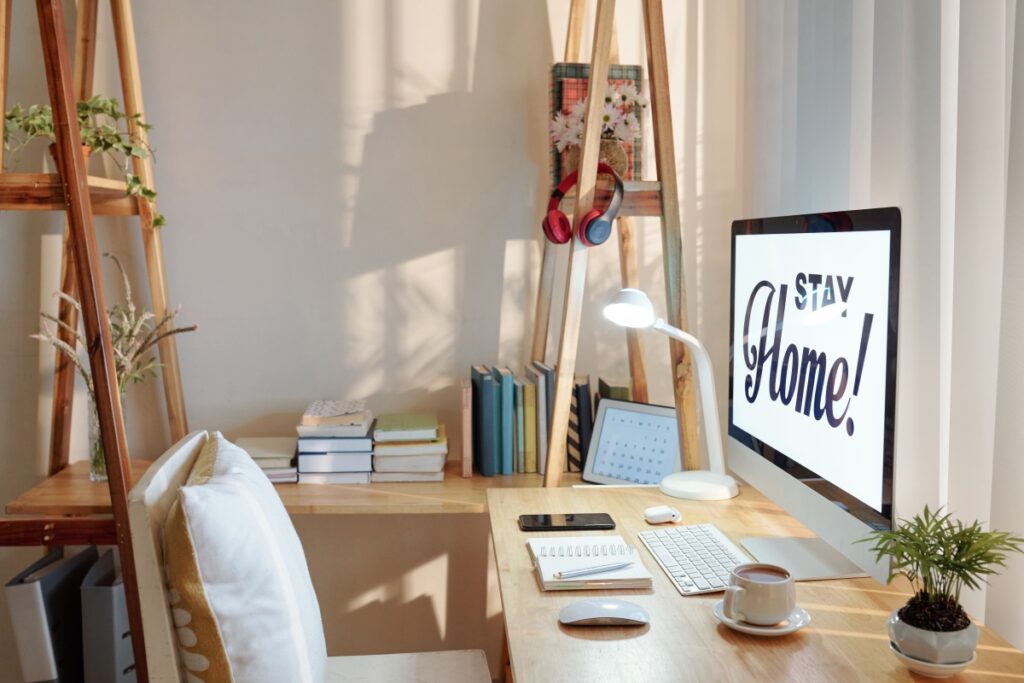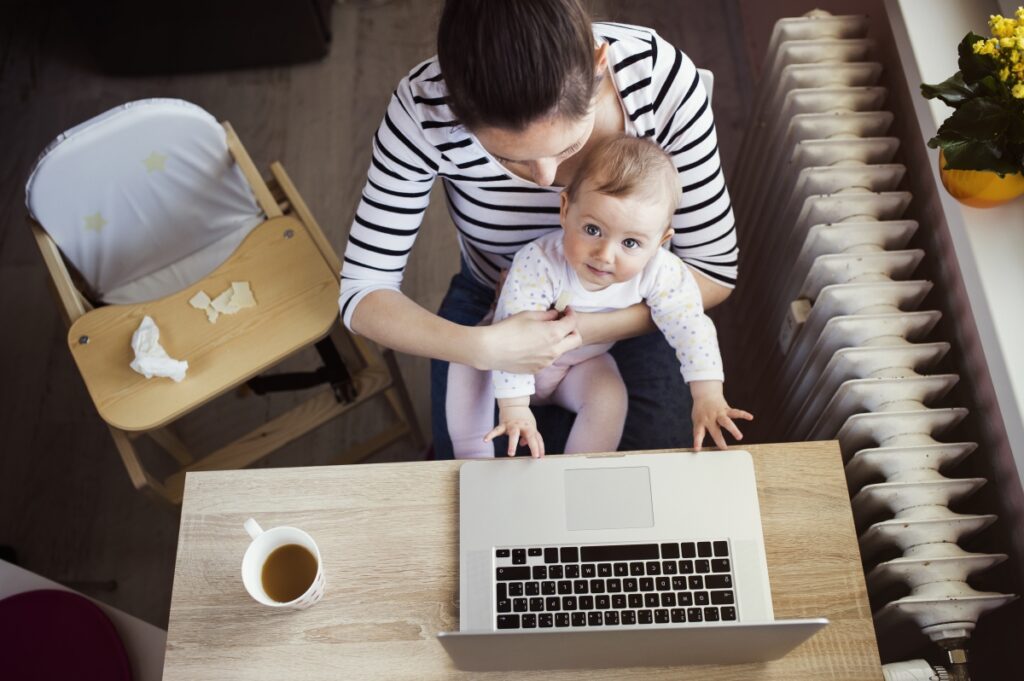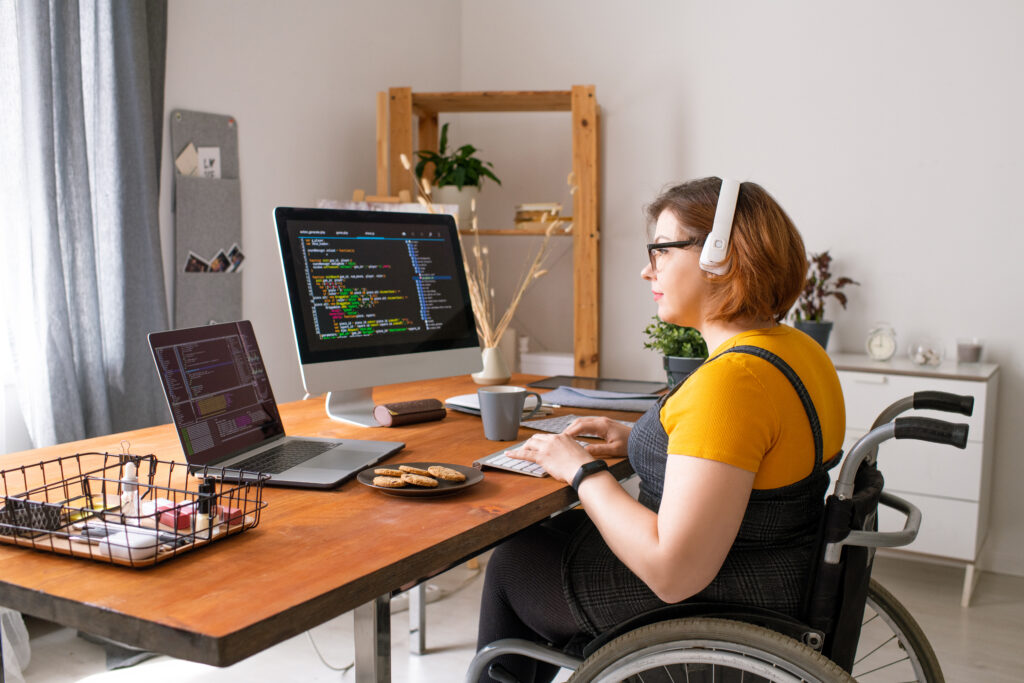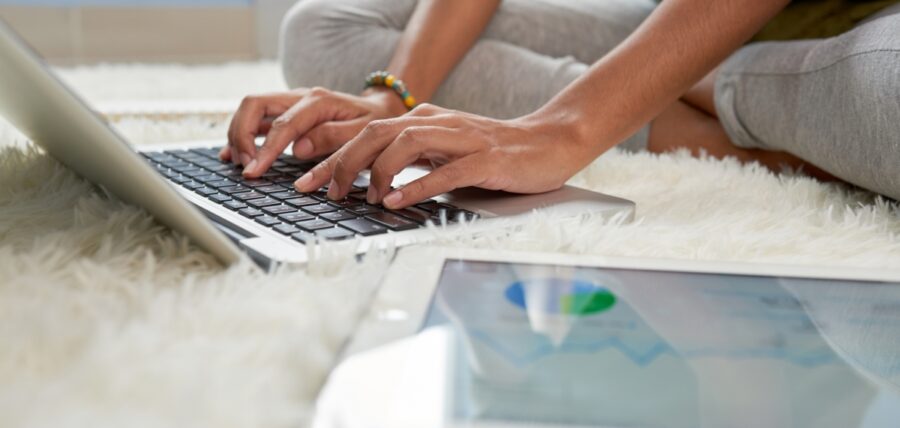Whilst lockdown has presented difficulties for the vast majority of us, working from home does come with many upsides. For many it has meant snoozing for an extra half an hour to dodge the commute; however, issues of stress, boredom, anxiety and uncertainty are challenges we are still facing daily. Dealing with distractions when working from home comes with a whole host of different challenges.
How To Deal With Distractions At Work
Distractions at work are inevitable. We head to the breakout area for a coffee and spend the next 20 minutes conversing with a colleague. Or we mindlessly scroll through Instagram for half an hour to ‘take our eyes off the screen’.
However, the distractions we face at home are undeniably harder to control; from working in our pyjamas to finding ourselves still sending emails at 10 pm. During a recent webinar hosted by Everymind, we outlined some of ways to help you deal with distractions when working from home.
Create a routine and stick to it
Write out a schedule if you have to. Blurring the lines between work and home life can lead to unhealthy and inconsistent patterns.
Ensure to get up and eat at the same time each day to create a similar routine to the one you’d be in if you were at work. It’s very easy to want to work in your pyjamas, especially if you aren’t participating in Zoom calls, however, this makes it hard to differentiate work life from home life. Therefore setting aside specific ‘work’ and ‘home’ clothes will make all the difference.
With the winter months setting in, it’s easy to want to stay in bed a bit longer, however try using the commute time to exercise, read or indulge in a hobby.
When the work day is over, ensure you stop working and avoid checking emails late at night or adding final touches to a report so that you can get to bed on time. This will help you to focus on home life better.

Workspace is where you work, home is where you live
If you can, dedicate a space to work where you won’t be distracted by the TV or the kitchen, and keep all your work equipment close so you won’t be straying back into your home space for a stapler.
Whilst it’s not possible for everyone, if you can, close the door to or mark out your work space so that others can avoid it to not disturb you.
Make sure you are comfortable but not too comfortable! The big sofa with a cosy blanket and cushions is great for watching Friends but not while you work. Try to keep to NHS guidelines by sitting correctly at a table or desk with an ergonomically safe chair.
Give yourself regular breaks
Working from home should not mean we are dispensable 24 hours a day. Fatigue often means we are “present” but unable to perform to the best of our ability, which causes our mental health to suffer.
Regular short breaks from our screen or for a meal preserve our mental health and reduces our stress levels so that when we return to work our mind is refreshed and can concentrate again. Our minds and bodies are intrinsically linked, a healthy body and mind lead to increased productivity.
Getting away from your house (that is now your office) is important. As the winter draws in, many of us suffer from SAD (Seasonal Affective Disorder). Therefore, if you can, get out for a walk, run or cycle for a change of scenery and to take in some fresh air.
To avoid sitting for long periods, ensure you stretch and exercise regularly, not only does this help your body it also helps build discipline in the mind too. Small, yet effective practises like this help your mind to focus to avoid distractions.

Feelings of isolation can be very detrimental to good mental health
Working from home can create feelings of isolation so stay in touch with family and friends. This will not only help your mental health but theirs too, which will allow you to worry less about them, which we all do.
Human interactions are healthy for us all so make use of video calls and telephone calls instead of emailing to keep in touch with colleagues regularly. Others may be feeling the same as you, so looking out for each other is really important and the virtual world is not just for work.
Don’t be afraid to tell your manager if you are struggling, it is really important issues are faced head on to keep yourself feeling healthy and efficient.
Set boundaries with those you live with
Family, housemates and partners can all be a distraction too. Setting healthy boundaries will keep you mentally healthy, and preserves your personal relationships.
Whilst you can be more flexible working from home, it’s okay to enjoy it, but if there are too many distractions, you will find it more difficult to concentrate. We recommend you have a discussion about your needs and those of your family or housemates, and keep gently reminding others of boundaries if they slip.
It might surprise you that children like rules because they create comfortable spaces for them. To keep your boundaries clear with children, you could create a “working zone/time” sign.
Boundaries are also useful for your work schedule, too. When your working day ends, time with your family/at home should take over. It is easy to let work take over so be strict with yourself and enjoy time with your family or housemates.
Accept that distractions will be all around
Don’t pretend the TV isn’t in the other room, the fridge isn’t filled with tasty snacks or your puppy isn’t ready to play as soon as you pick up a squeaky toy! By denying their presence the distractions only knock louder so embrace the distractions but compartmentalise them for another time (a scheduled time).
However, it is also okay to reward yourself with them too. Our minds work in wonderful ways and delayed satisfaction is a positive tool to help productivity.

Be mindful that technology itself is a distraction
Working from home requires a great deal of digital interfacing and as useful as it is, it can halt our productivity. To ensure we aren’t disturbed at all hours, turn off notifications and return to email at scheduled times.
The same applies to social media, turn off Twitter, Instagram, Facebook and TikTok if you’re unable to resist checking them throughout the working day. It’s okay to schedule yourself promised time for all these as they make for nice treats for milestones.
Separate yourself from all technology at the end of the day and spend quality social time with family, partner or housemates. Why not take up a new hobby; something artistic and unrelated to your work?
Build in “digital detox” methods to help reintroduce those natural breaks. By relying so much on technology, it increases the difficulty of separating work from home life which can be damaging to our mental health.
Set yourself goals
This can be a simple daily to-do list. Prioritise when to check emails or your phone and schedule this into your week by level of importance and start each day by assessing and revising your list.
When we set ourselves goals it is important to be realistic about what can be achieved in your allocated work time. Do set deadlines and try to stick to them but don’t overload yourself.
To improve productivity and motivation, tick things off as you go and give yourself those treats when you reach a new milestone.

There are positives, and training your mind to seek them out and appreciate them is a way of lifting your mood. Over time, our productivity will improve, and dealing with distractions when working from home can effectively be managed, along with stress levels. Collectively, overall job satisfaction will improve.
Be kind to yourself and others
Accept that this situation is unusual, and making mistakes is inevitable. Your productivity may dip but your first days at a new job are never your best so it is important to be realistic about what is achievable and you will surprise yourself about what you actually then achieve.
Remember to relax when your work day is done and pat yourself on the back for a good day’s work. New things always offer challenges however your initial discipline will keep things even and allows you to adjust to a new level of productivity.








